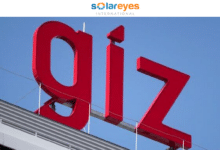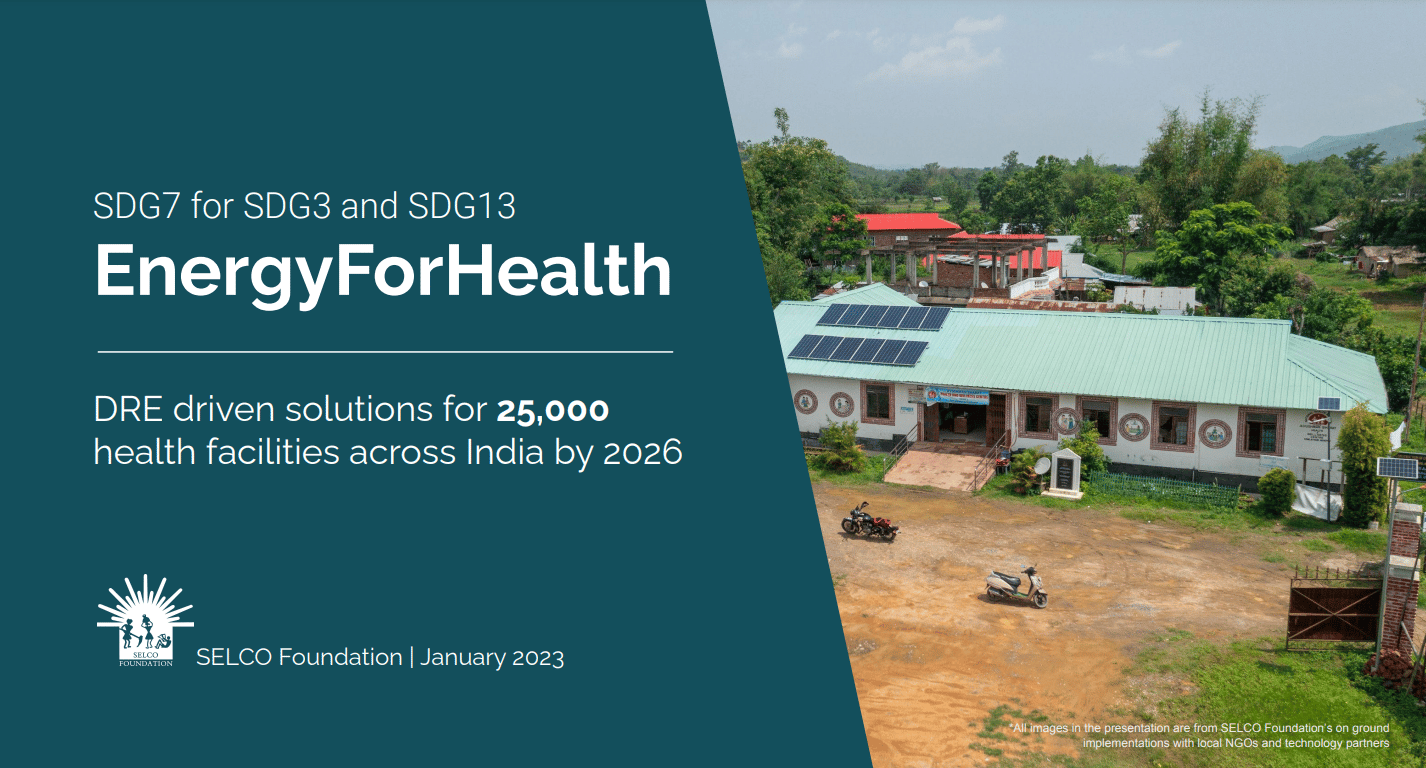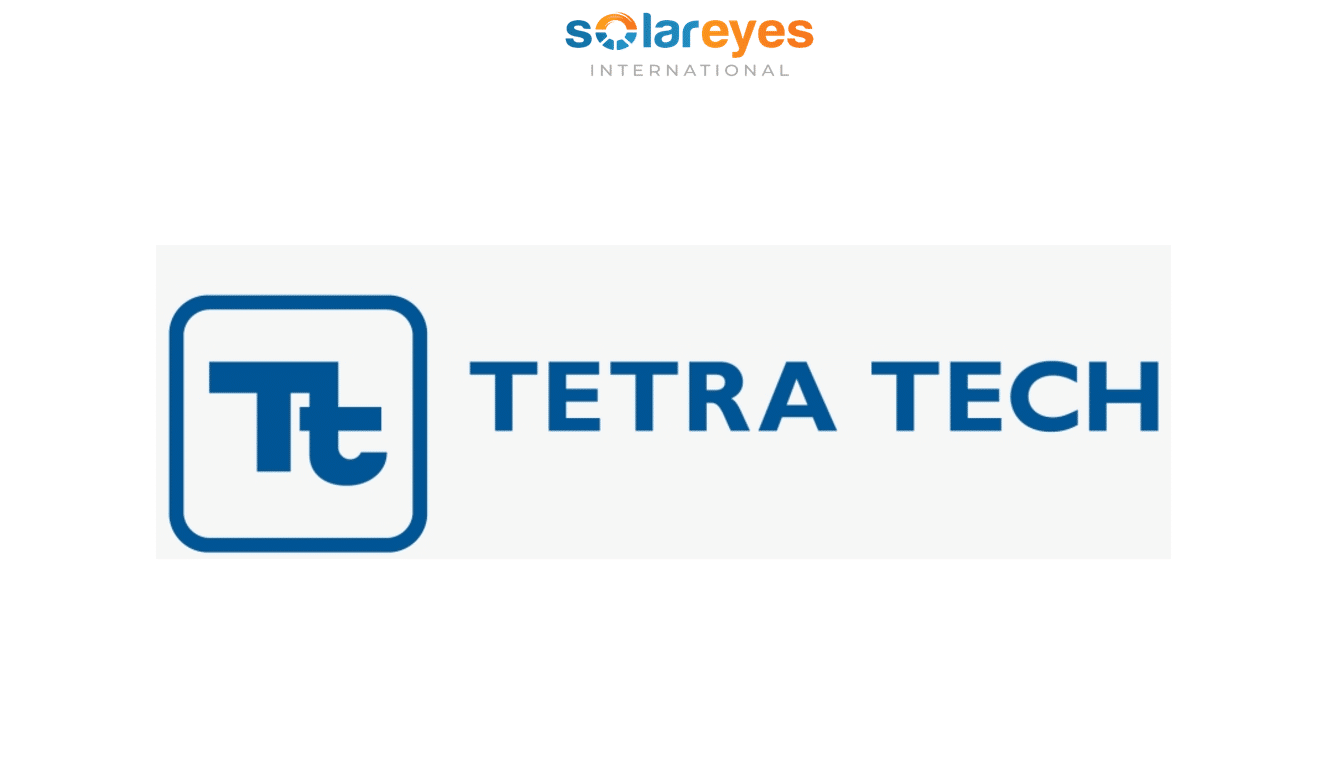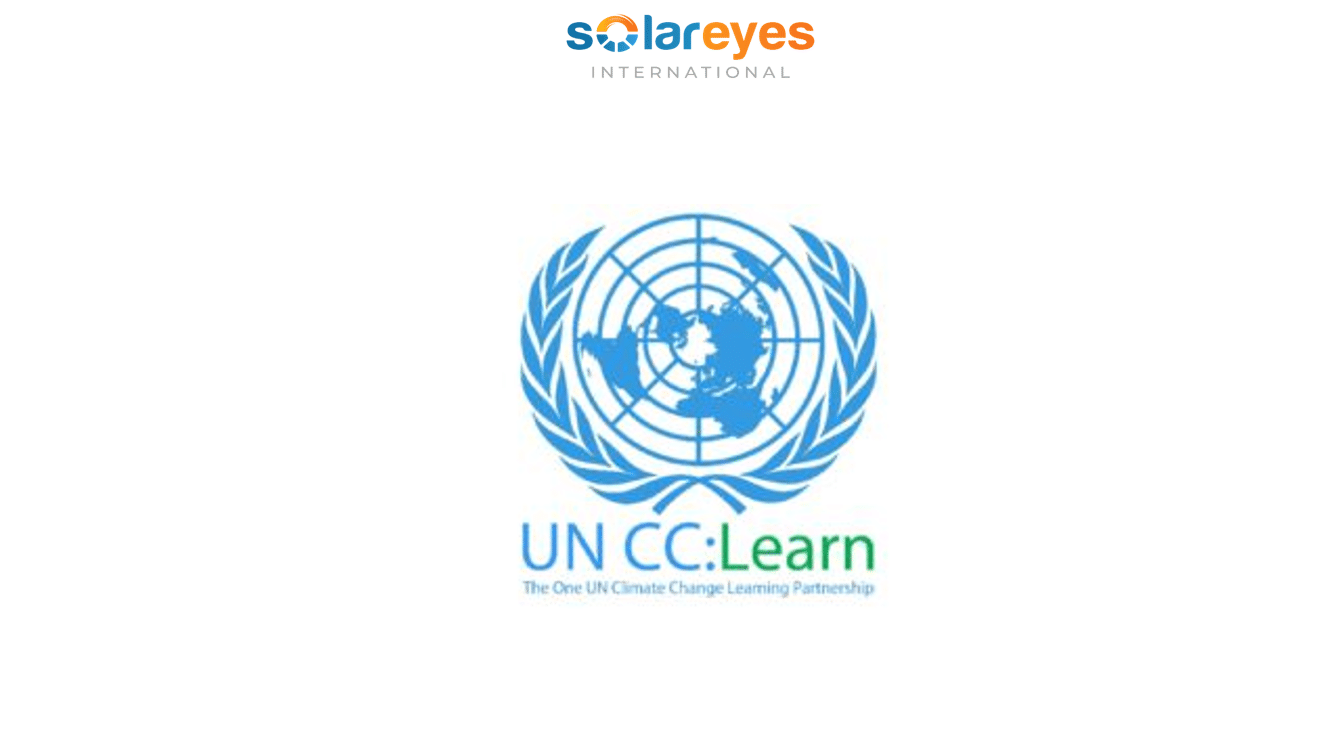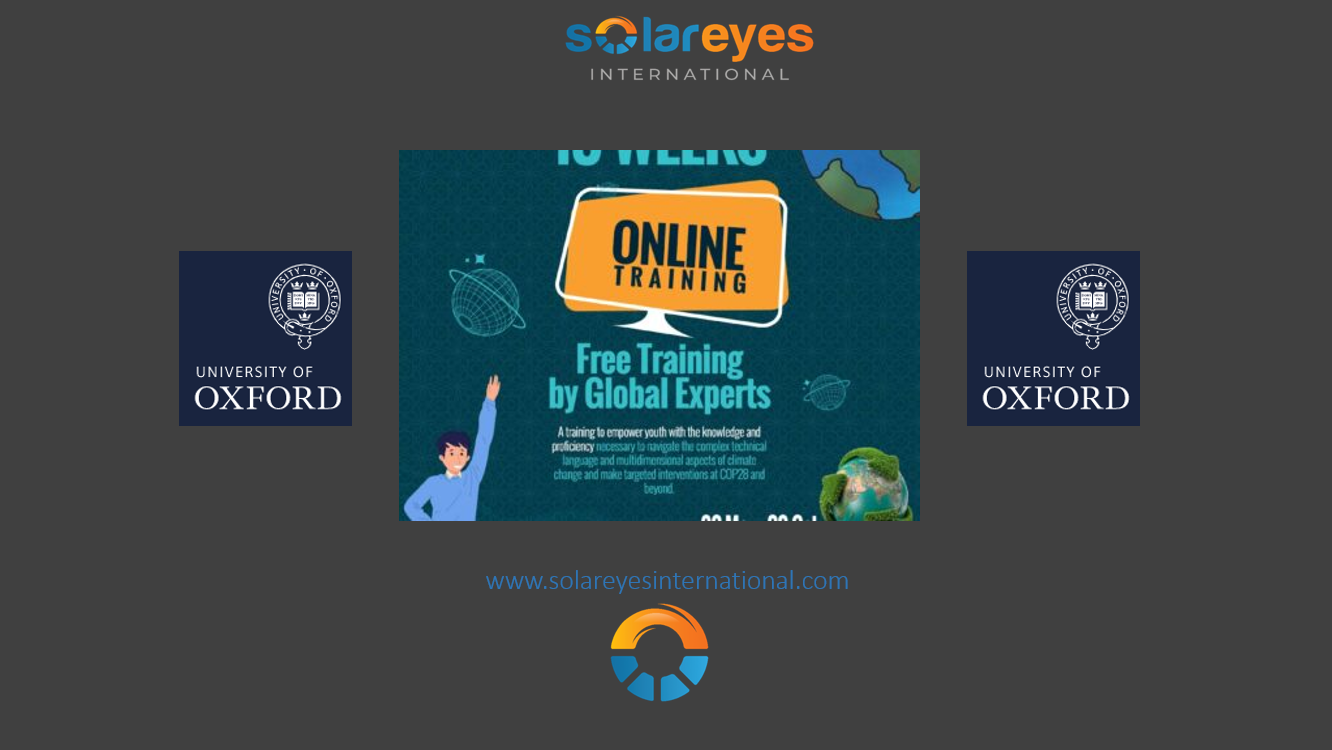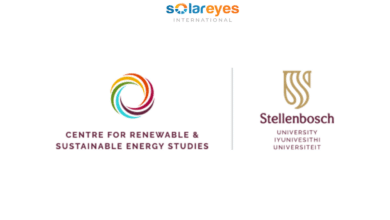UNICEF International Consultancy For Pre-Feasability Analysis on Carbon Credits Potential in East and Southern Africa Region – Remote or Home Based
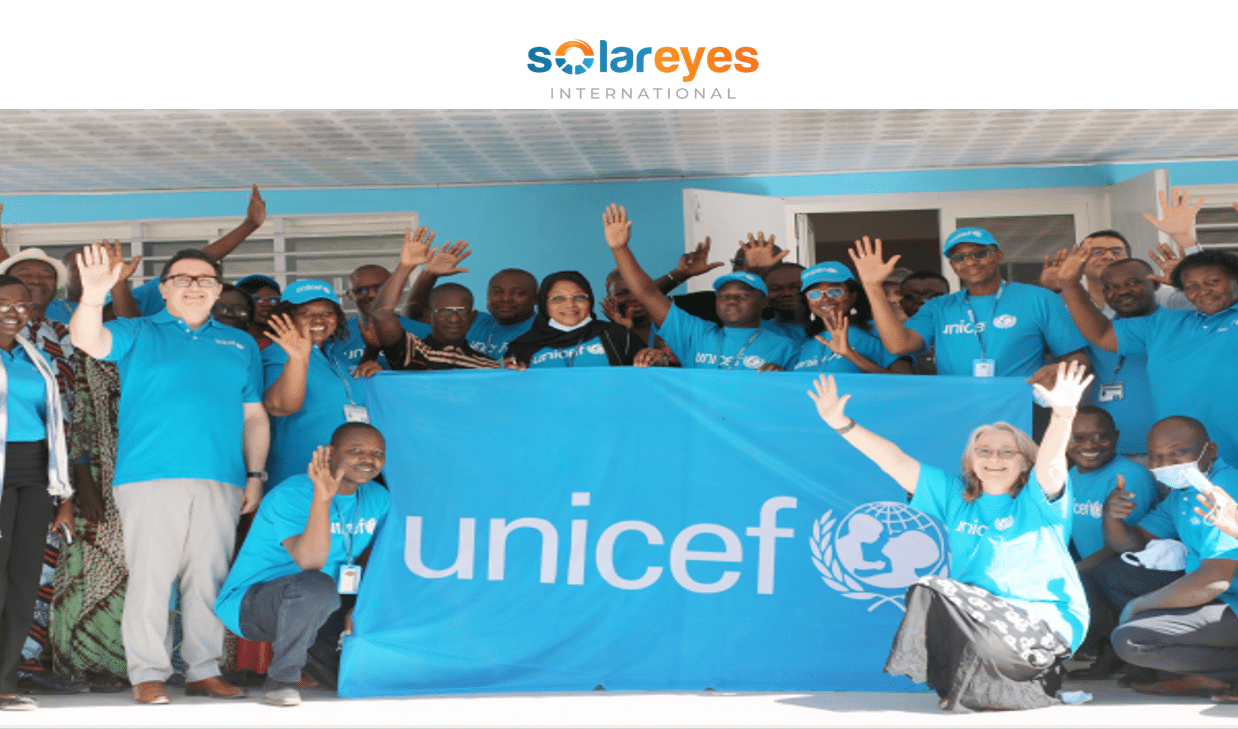
UNICEF International Consultancy For Pre-Feasability Analysis on Carbon Credits Potential in East and Southern Africa Region – Remote or Home Based
Job no: 565816
Contract type: Consultant
Duty Station: Nairobi
Level: Consultancy
Location: Kenya
Categories: WASH (Water, Sanitation and Hygiene)
UNICEF International Consultancy For Pre-Feasability Analysis on Carbon Credits Potential in East and Southern Africa Region – Remote or Home Based
UNICEF works in some of the world’s toughest places, to reach the world’s most disadvantaged children. To save their lives. To defend their rights. To help them fulfill their potential.
Across 190 countries and territories, we work for every child, everywhere, every day, to build a better world for everyone.
And we never give up.
For every child, make a difference.
Water, Sanitation and Hygiene (WASH) | UNICEF
How can you make a difference?
Background and Justification: UNICEF International Consultancy For Pre-Feasability Analysis on Carbon Credits Potential in East and Southern Africa Region – Remote or Home Based
East and Southern Africa Region (ESAR) is one of the most vulnerable regions in the world to the impacts of climate change. It has suffered a 7-fold increase in severe environmental problems exacerbated by climate change since 1980. In the Horn of Africa (Somalia, Ethiopia, Eritrea, and Kenya), over 20 million people and at least 10 million children face severe drought conditions. The drought has led to the failure of five consecutive dry seasons, killing livestock and crops, displacing populations, increasing the risk of disease and malnutrition, and pushing children and families to the brink of death/destitution.
Multiple Energy Careers at ABB – different roles in different countries
Considering the urgency of this agenda, ESARO established a regional flagship programme Collaboration for Children (2022-2025) on climate resilience, adaptation and children to be driven across countries of Eastern and Southern Africa using innovative approaches. The two regional flagships are the learning crisis and climate resilience. A Climate Resilience Hub – “Climate Collaboration for Children” – has been established at ESARO as a platform for action.
Additionally, UNICEF’s strategy is aiming to mainstream Climate and environment, Sustainable Energy, and Disaster Risk Reduction across the organization’s Headquarters, as well as Regional and Country Offices. The development and implementation of climate resilience projects in ESAR are essential to addressing the impacts of climate change and building resilience in vulnerable communities.
These projects can have co-benefits beyond reducing greenhouse gas emissions, such as improving the health and well-being of local communities, enhancing ecosystem services, and providing economic opportunities. However, funding for these projects can be a challenge for many communities and organizations.
Carbon credits can provide a market-based solution to support the implementation of climate resilience projects in ESAR. By investing in projects that reduce greenhouse gas emissions, organizations can offset their carbon footprint while also supporting climate resilience efforts in the region.
These investments can help to build resilience in vulnerable communities, provide economic opportunities, and improve the health and well-being of local populations. Overall, the use of carbon credits can be an important tool for supporting climate resilience efforts in ESAR and other vulnerable regions around the world.
Top 5 PAYGO Platforms for Solar Home Systems: Empowering Off-Grid Communities
UNICEF, as a leading international organization, has the potential to make a significant contribution towards promoting sustainable development and reducing greenhouse gas (GHG) emissions in the Eastern and Southern Africa Region (ESAR). UNICEF can play a vital role in carbon emission reduction in each of the points below:
- Climate Change Impact on Vulnerable Children and Communities
- Sustainability Goals
- Market Opportunities
- Partnerships and Collaboration
Scope of Work: UNICEF International Consultancy For Pre-Feasability Analysis on Carbon Credits Potential in East and Southern Africa Region – Remote or Home Based
1. Project Initiation Phase (Sep 1 – Sep 30) 2023
- Define the scope of the project in consultation with UNICEF.
- Develop a project charter including project goals, objectives, and timelines
- Develop a detailed project plan, including a schedule, methodology, and budget
2. Carbon Credits Investigation Phase (Data collection and desk review: Oct 1, 2023- Jan 30, 2024)
- Conduct a comprehensive desk review of carbon credit projects implemented by other organizations such as UN agencies, INGOs, and governments globally with a focus on ESAR. This review aims to identify potential areas of collaboration and determine the additional value that UNICEF could bring to its carbon credit initiatives.
- Conduct a thorough review of UNICEF’s programs and operations to identify potential sources of carbon credits.
- Conduct a thorough review to identify the applicable carbon credit standards and regulations that apply to humanitarian projects in the region
- Collect data on the potential carbon emissions reductions from projects in the region
- Determine other types of credit systems available in the market
- Identify potential funding sources for the development of carbon credit projects in the region
- Collect data on UNICEF’s carbon emissions and energy usage
3. Analysis Phase (Feb 1 – May 30) – 2024
- Determine the feasibility of pursuing carbon credits as a revenue stream.
- Calculate the potential revenue that could be generated from carbon credits
- Identify potential methods to utilize carbon credits other than the financial aspects.
- Evaluate the costs and risks associated for UNICEF with pursuing carbon credits
- Identify any barriers or challenges for UNICEF to implementing a carbon credit program
- Provide technical and analytical support on carbon credit transactions
- Develop recommendations for UNICEF regarding the feasibility of pursuing carbon credits
4. Reporting Phase (Jun 1 – Aug 15 ) -2024
- Prepare a detailed report outlining the findings and recommendations of the pre-feasibility analysis
- Guide the next steps for the organization to pursue if they decide to proceed with a carbon credit program
- Provide a Preferability analysis report with a summary through a PowerPoint presentation to UNICEF.
Deliverables: UNICEF International Consultancy For Pre-Feasability Analysis on Carbon Credits Potential in East and Southern Africa Region – Remote or Home Based
A project charter that outlines the goals, objectives, and timelines for the project. This document serves as a roadmap for the entire project.
Detailed project plan which outlines the specific tasks and activities that need to be completed, along with the resources required to complete them. It also includes a timeline for each task and an estimated budget for the entire project.
The data collection report which details how data was gathered and analyzed. It provides insight into the information used to inform decisions throughout the project and helps to ensure that the project is based on accurate and reliable data.
The feasibility analysis that assesses the viability of the project, taking into account various factors such as technical feasibility, financial feasibility, and operational feasibility. It provides recommendations on whether or not the project should proceed and outlines any potential risks or challenges that need to be addressed.
Presentation to UNICEF is required to communicate the project’s progress and outcomes. This presentation should summarize the project’s findings and conclusions and provide an opportunity for stakeholders to provide feedback and input on the project’s future direction.
RES4Africa Academy Technical and Vocational Micro-Grid Training (Fully Funded)
The consultant needs to collaborate and coordinate closely with the 21 country offices to obtain the necessary information for the feasibility analysis.
Please note that the timetable and scope of work provided are tentative and can be adjusted according to the specific needs and requirements of UNICEF ESAR. The consultant will work and collaborate closely with the UNICEF ESARO Energy Specialist before the study.
Deliverables and Proposed Schedule of Payment
| Deliverables | Timeline/Deadline | Schedule of payment |
| 1- Project Charter | 30th of Sep 2023 | 10% |
| 2- Detailed Project Plan | 30th of Oct 2023 | 10% |
| 3- The data collection report | 29th of Feb 2024 | 25% |
| 4- Final Pre-Feasibility Analysis Report | 5th of Aug 2024 | 45% |
| 5- Presentation of findings | 15th of Aug 2024 | 10% |
All documents and reports are to be in English and be submitted in electronic copy.
Costing
The consultant is expected to make a financial proposal based on the rate for professional fees.
Y Combinator Winter 2024 Funding Cycle is Now Accepting Applications – APPLY!
To qualify as an advocate for every child you will have…
- Education: An advanced degree in environmental sciences, sustainability, climate financing, carbon accounting, or a related field.
*A first University Degree in a relevant field combined with 2 additional years of professional experience may be accepted in lieu of an Advanced University Degree. - Experience: A minimum of ten years of professional experience in above mentioned areas is required. Experience in conducting similar assignments, particularly with UN agencies is highly desirable.
- Skills: Demonstrated skills in project management, carbon, and renewable energy markets, data analysis, financial modeling, and carbon emission/reduction estimations, and have adequate knowledge of relevant regulations and policies related to carbon credits. Ability to analyze and develop carbon management strategies, evaluate UNICEF emissions and reduction data and activities, and guide how to reduce carbon emissions. Strong communication skills to effectively communicate with UNICEF team members in the regional and country offices.
- Prior experience working with UNICEF or any other international development agencies with similar work is desirable. Familiarity with UNICEF’s policies, procedures, and best practices is highly desirable.
- Experience in successfully implementing projects or initiatives similar to those undertaken by our organization is desirable
- Developing country work experience and/or familiarity with emergency is considered an asset.
- Fluency in English is required. Knowledge of another official UN language (Arabic, Chinese, French, Russian, or Spanish) or a local language is an asset.
For every Child, you demonstrate…
UNICEF’s values of Care, Respect, Integrity, Trust, Accountability, and Sustainability (CRITAS).
Required competencies that the consultant should have for the assignment as per the UNICEF competency framework
- Self-awareness and ethical awareness
- Drive to achieve results
- Work collaboratively with others
- Innovating and embracing change
To view our competency framework, please visit here.
Top 5 PAYGO Platforms for Solar Home Systems: Empowering Off-Grid Communities
How to Apply: UNICEF International Consultancy For Pre-Feasability Analysis on Carbon Credits Potential in East and Southern Africa Region – Remote or Home Based
Qualified candidates are requested to submit a cover letter, CV, P11 form, and their technical proposals to the online recruitment portal (Talent Management System) or email provided.
Interested candidates to indicate ability, availability, and daily rate expressed in USD for internationally recruited candidates
FOLLOW US ON SOCIAL MEDIA
Follow us on LINKEDIN, FACEBOOK, TELEGRAM GROUP and WHATSAPP.
*** ALSO CHECK: HOW TO SIZE A SOLAR SYSTEM – 5 clear steps anyone can follow
HOW TO START A SOLAR COMPANY – do these 6 things and make money through solar
How to Identify Fake Solar Products
SOLAR PANEL LOSSES: All you Need to Know + Tips on how to avoid them
SOLAR PV MODULE MANUFACTURING PROCESS EXPLAINED – from solar cells to solar panel
10 Surprising Ways Solar Energy Can Save You Money Today!

